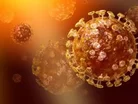What you need to know about the MERS disease in South Korea

As we recently reported, there is a new disease that is rapidly spreading throughout Seoul, South Korea—Middle East Respiratory Syndrome (MERS).
With currently more than 2,300 people under quarantine, 87 individuals infected and six deaths caused by the disease, these are the key facts to be aware of as we continue to learn more about this recently discovered disease.
1. MERS is a coronavirus.
In the same family of viruses as SARS (severe acute respiratory syndrome), MERS acts like a cold and attacks the respiratory system, according to the Centers for Disease Control and Prevention (CDC). Symptoms include fever and a cough and can lead to pneumonia and kidney failure.
RELATED TOPIC: 12 diseases that just won't quit
The average age of individuals who contract MERS are 51, according to officials, but ages range from 2- to 94-years-old.
2. Cause of transmission is currently unknown.
While all MERS cases have been linked to six countries on the Arabian Peninsula, limited human-to-human transmission has been seen among people in close contact with patients.
RELATED TOPIC: The world may no longer know these 4 deadly diseases by 2030
As the disease is still fairly new, doctors and scientists do not know the exact source or mode of its transmission, making the disease much more dangerous.
3. Camels are somehow linked to MERS.
In a paper published earlier this week, researchers said they had isolated the live MERS virus from two single-humped camels, known as dromedaries. In February, scientists published a finding that nearly three-quarters of camels in Saudi Arabia tested positive for past MERS exposure.
MERS was also found in a bat in Saudi Arabia, the CDC said.
4. The disease may have a seasonal pattern.
Officials have noted a surge in MERS cases this spring, and a similar increase was also seen last spring. But they don't know whether the factors that lead to MERS may have a seasonal pattern, or whether the virus changes to become more easily transmissible.
RELATED TOPIC: How much money is spent on health care and disease eradication around the world?
5. There are currently no treatments or a vaccine available.
As of now, doctors can treat symptoms of MERS, such as fever or breathing difficulties. However, there is no vaccine and no specific medicine, such as an antiviral drug, that targets MERS.
Tags
disease- Floodwaters pose a significant hazard to public health says Houston Health DepartmentDigital Healthcare
- Pfizer to help raise awareness around infectious diseases in the UAEDigital Healthcare
- Can cellphone tracking slow the spread of MERS in South Korea?Technology & AI
- Why the Samsung Medical Center is not to blame for the spread of MERS diseaseHospitals





